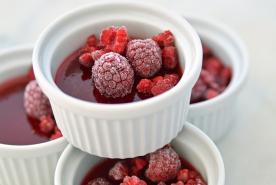Last updated: September 02, 2025
Medically reviewed by: NKF Patient Education Team
Contributions by: Melanie Betz MS, RD, CSR, FNKF, FAND
Calcium kidney stones are the most common type kidney stone. Calcium kidney stones can be calcium oxalate or calcium phosphate (aka brushite or apatite). Learn about risk factors, prevention tips, and dietary guidelines.
Table of Contents
About calcium kidney stones
Calcium kidney stones are the most common type of kidney stone. Kidney stones are solid masses that form in the kidney when there are high levels of calcium, oxalate, or phosphate in urine (pee), not enough urine or not enough things that can stop calcium kidney stones from forming like citrate or magnesium.
Kidney stones can also be caused by urine that is too concentrated. This is usually because of dehydration or not drinking enough water.
Who is at risk for calcium kidney stones?
Certain risk factors make you more likely to form calcium stones. These risk factors include:
- A family history of kidney stones
- Dehydration from not drinking enough fluid or excessive sweating
- A diet too high in:
Protein from foods like beef, pork, poultry, fish and seafood
- Sodium (salt)
- Added sugar (especially high fructose corn syrup)
- A diet that doesn’t have enough:
Calcium
- Fruits and vegetables
- Fiber
- Obesity
- Medical conditions like:
- Hyperparathyroidism
- Malabsorptive disorders:
- Inflammatory bowel disease (Crohn’s disease or ulcerative colitis)
- Short bowel syndrome
- Gastric bypass surgery
- Short bowel syndrome
- Diabetes
- Some eating disorders
- Rare genetic disorders:
- Dent Disease
- Primary hyperoxaluria (type I and II)
Symptoms of calcium kidney stones?
Pain is the main sign of passing a kidney stone. It is often described as the worst pain of the patient’s life.
Other signs or symptoms you are passing a kidney stone include:
- Sudden, severe pain in back or side
- Nausea and vomiting
- Groin pain as the stone passes down the urinary tract
- Burning or pain while urinating
- Blood in pee (hematuria)
- Fever and/or urinary tract infection
What is the treatment for calcium kidney stones?
If you’ve formed a calcium kidney stone, your doctor will work with you to come up with the best treatment. The best treatment for you depends on where your kidney stone is in your urinary tract, how big it is, what type it is, if it is blocking the flow of urine, if it is causing pain and your body.
If the kidney stone is not causing issues, your doctor might suggest waiting and watching it with annual x-rays or ultrasounds. If the kidney stone has to be removed, there are many different treatments your doctor might recommend.
If you think you are passing a kidney stone, contact your doctor immediately or go to the emergency room.
Prevention of calcium stones?
Kidney stone prevention is different for every person with calcium kidney stones. There are different causes even for the same type of kidney stone. A 24-hour urine collection is important to understand what is causing your kidney stones. You and your doctor can use this information to come up with a personalized kidney stone prevention plan for you!
Here are some of the most common recommendations to prevent both calcium oxalate and calcium phosphate kidney stones. Your doctor or kidney stone dietitian can help you know which of these changes will prevent kidney stones for you.
- Take medication. Your doctor might recommend medication to help prevent kidney stone depending on your 24-hour urine collection and how many kidney stones you’ve had. The most common medications prescribed for calcium kidney stones are potassium citrate (to help increase urine pH and citrate levels) and thiazide diuretics like chlorthalidone or indapamide (to help lower urine calcium).
- Drink enough fluids. The number one thing you can do is to drink enough fluids, like water. Drinking enough fluids will make your urine less concentrated and make it harder for crystals to form. Drink enough fluids so you pee about 2½ liters (or about 85 ounces) each day. Most people with kidney stones should aim for about 100 fluid ounces (12-13 cups) of fluid each day. All fluids “count”. The best fluids to prevent kidney stones are water, milk, unsweetened sparkling water, diet lemonade or diet lemon lime soda, and coffee/tea without added sugar. Avoid sugary drinks and too much juice.
- Eat plenty of fruits and vegetables. These are packed with things that are good for people with kidney stones like potassium, fiber and magnesium.
- Avoid eating too much protein from foods like beef, pork, poultry, fish & seafood. Avoid large portions of these foods and try eating them less often. Swap in plant protein foods like whole grains, beans, nuts and seeds to help cut back how much animal protein you eat. The right amount of protein for you depends on your 24-hour urine collection, body size, lifestyle, age and other medical history.
- Eat less salt (sodium). A diet high in salt (sodium) causes higher calcium in your urine and can weaken your bones. Aim for about 2,300mg of sodium per day. About 80% of the sodium we eat is already in our food. Look at the Nutrition Facts label to see how much salt is in the foods you eat.
- Make sure to get enough calcium from food. People with calcium kidney stones should NOT be on a low calcium diet. Counterintuitively, eating enough calcium can help prevent calcium oxalate kidney stones. Calcium in your diet helps lower how much oxalate gets absorbed from the healthy foods you eat. Calcium is also important for bone health. Aim for 1,000-1,200mg calcium per day, or 2-3 servings of dairy per day with meals. Eat plenty of fruits & vegetables. All fruits and vegetables are packed with things that can make it harder for calcium kidney stones to form. Eating plenty of fruits and vegetables can increase things like in urine like citrate, magnesium, phytate and help balance acid levels in your urine. Aim for at least 5 servings of fruits and vegetables per day.
- Avoid vitamin C supplements. Your liver can make oxalate from too much vitamin C. If you have calcium oxalate kidney stones, avoid large amounts of vitamin C supplements and foods fortified with vitamin C.
- Limit very high sources of oxalate. If you have calcium oxalate kidney stones, and have high urine oxalate, limit only very high sources of oxalate. A strict low oxalate diet isn’t helpful for most people. It makes it hard to eat a healthy well-balanced diet and get in compounds that help prevent calcium kidney stones. Eating enough calcium to lower how much oxalate gets absorbed is a better way to balance oxalate than a strict low oxalate diet for most people. The foods that are very high in oxalate are:
- Spinach
- Swiss chard
- Almonds
- Rhubarb
- Beets
- Navy beans
- Potato with the skin
Some supplements could also have very high amounts of oxalate such as:
- Cinnamon supplements
- Turmeric supplements
- Green “superfood” supplements made with high oxalate ingredients
- Juice or smoothie “cleanses” made with high oxalate ingredients
Working with a registered dietitian nutritionist familiar with kidney stones can help you know which of these changes are most important for you, and help you make changes that are realistic and healthy for you!
Diets to help kidney stones
Both the Mediterranean and “DASH” (or, Dietary Approaches to Stop Hypertension) dietary patterns have been associated with fewer kidney stones. Although kidney stone prevention should be personalized to your 24-hour urine collection, these diet patterns are the perfect place to start making diet changes to prevent kidney stones.
The Mediterranean and DASH diet both promote:
- Plenty of fruits & vegetables
- Whole food plant proteins like beans, nuts, seeds, lentils and tofu
- Whole grains such as brown rice, whole grain bread, pasta
- Small amounts of red meat, processed meat and poultry
- Limited added sugar and salt
- The DASH diet recommends 2-3 servings of low-fat dairy per day
How do I know if my treatment is working?
You’ll know if your diet and/or medication to prevent kidney stones is working if you stop making kidney stones, stop making them less often or your kidney stones do not get bigger.
You can also see improvements on your 24-hour urine collection results, which measure the risk that you will form more kidney stones. Your doctor should get a 24-hour urine test at least once a year to see if your kidney stone prevention plan is working.
Key Points
- Calcium kidney stones are the most common type of kidney stone. They are common and people who get one kidney stone are likely to have another.
- Kidney stone care falls into two buckets 1) treating kidney stones that have already formed and 2) preventing more kidney stones from forming.
- It is important to ask your doctor for a 24-hour urine test to figure out what is causing your kidney stones to come up with a personalized prevention plan for you.
- Many people can prevent kidney stones by drinking enough water, getting enough calcium from food, eating plenty of fruits and vegetables, and avoiding too much salt, added sugar and meat.
- A registered dietitian trained in kidney stone prevention can help you make diet and lifestyle changes.
Questions to Ask Your Healthcare Team
- What type of kidney stone do I have (or do you think I have)?
- What do you think caused my kidney stones?
- Can I get a 24-hour urine test to figure out why I am making kidney stones?
- When is the next time I should get imaging of my kidneys (i.e ultrasound, x-ray, CT)?
- What can I do to prevent more kidney stones?
- What should I do if I pass another stone?
- Can I get a referral to see a kidney stone registered dietitian?












